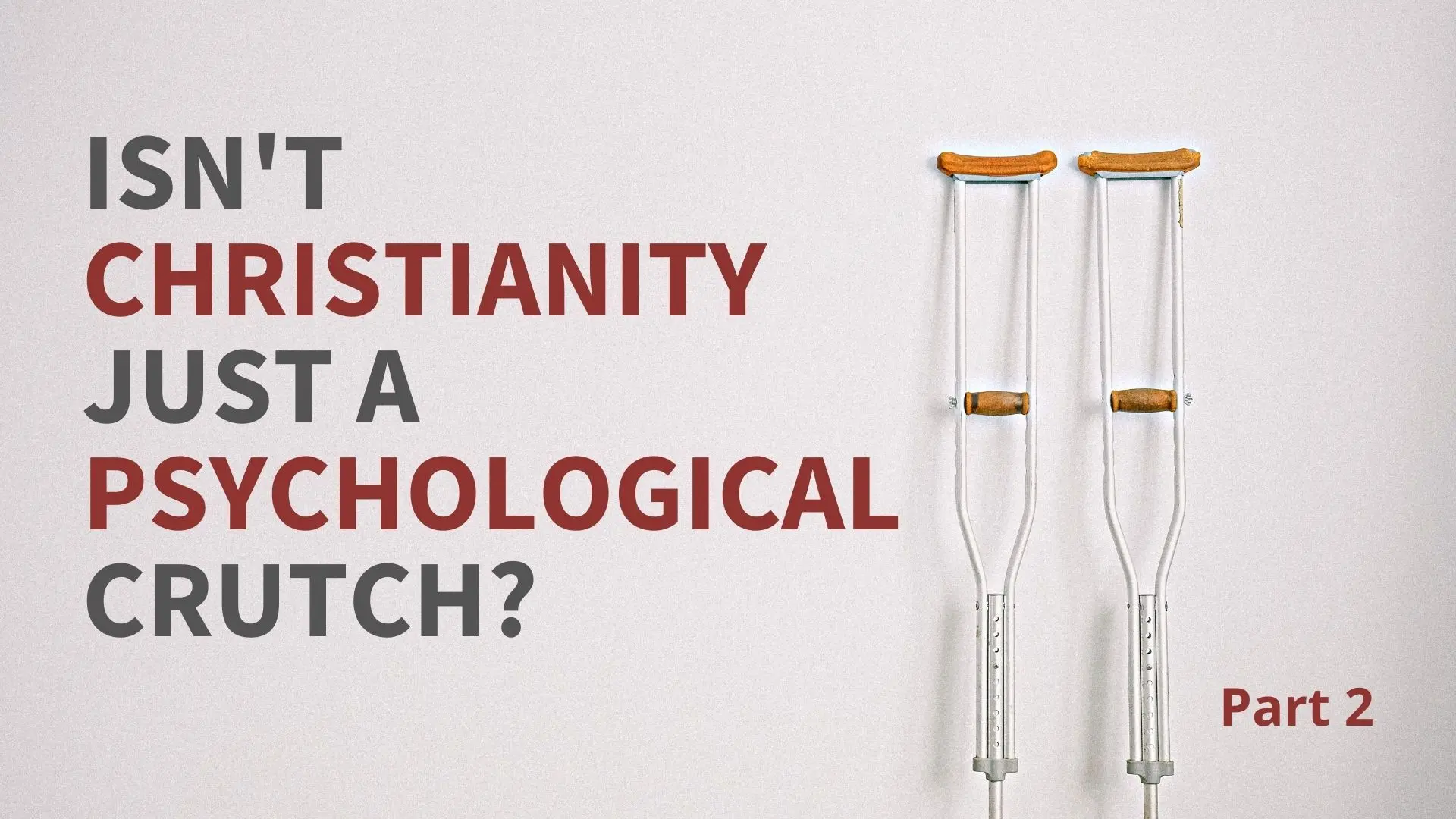We need to think well and realize that the Christian faith is founded on fact. The object of our faith is key. Although the amount of our faith may change, the object—the person and work of Christ—never will. As a result, Christianity is not a crutch—it’s the cure.
Psychological Objection: Belief and Emotions Do Not Determine Truth
In this objection, critics of Christianity assume that Christians simply declare their religion to be true based on their own beliefs or emotions. This assumption, however, is false. They are correct that belief and emotions do not determine truth, but they mistake the reason why Christians believe in Christ. There are objective criteria versus subjective beliefs, and Christians hold to their view based on that objective criteria.
Our culture tends to confuse objectivity and subjectivity. Often, people are disconnected from reality, saying, “That may be true for you, but it’s not true for me.” Reality simply cannot be reduced to such terms. Your faith is only as valid as the object in which it is placed. For example, someone may be walking across thin ice sincerely believing it to be robust—their faith is misplaced. On the other hand, someone may be walking across thick ice believing it to be thin. The object of their faith is strong even though their faith is weak.
Psychological Objection: Experience Does Not Determine Truth
This is similar to the previous objection about belief and emotions in that it assumes Christians hold to their religion because of their personal experiences. While some Christians (or people of any belief system) may fall into this illogical trap, we would agree with the premise that experience does not determine truth. Experience can verify truth, but it certainly does not prove it.
Psychology of Atheism
Although it is more common for culture to question Christianity, keep in mind that the tables can be turned. We can also examine the psychology of atheism. As a psychological crutch, atheism could be a way of alleviating guilt and avoiding accountability. In fact, Romans 1:18–19 tells us this is so:
For the wrath of God is revealed from heaven against all ungodliness and unrighteousness of men who suppress the truth in unrighteousness, because that which is known about God is evident within them; for God made it evident to them.
God has made Himself evident to us through His creation and because we are made in His image. Everything in creation points to His glory, but we have rebelled against God. As a result, we have become spiritually, intellectually, and morally darkened. Only in Jesus Christ are our minds enlightened and we we understand truth.
Christianity: Not a Crutch, but a Cure
The truth is that everyone searches for meaning in life, regardless of what we believe. We all ask the questions, “Where did I come from?”, “Who am I?”, and “Where am I going?” These can be terrifying questions when we do not know God; only Scripture gives us hope, and this is because it has at is center the person and work of Christ.
We find true meaning in Christ. And that meaning is founded on fact.
If Christianity is true, we all have a need for Him, whether or not we feel that. Christianity, then, is not a crutch but a cure. Every single one of us has the problem of sin, but Christ paid the full penalty of that sin. His substitutionary death is our cure. Although we still struggle with sin on this earth, there will one day be a resurrection and a new creation. Then, we will no longer struggle with sin.
Have questions about the Christian faith? Read Ken Boa’s I’m Glad You Asked, which addresses common questions about Christianity.



